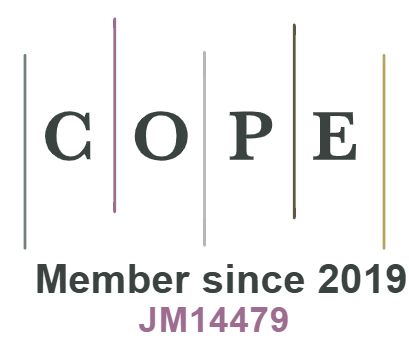Płeć kulturowa a percepcja środkowej fazy życia
DOI:
https://doi.org/10.18778/0208-600X.59.06Słowa kluczowe:
patriarchat, płeć kulturowa, percepcja średniego wieku kobiet i mężczyznAbstrakt
Teoretyczne ramy socjologicznej analizy przeprowadzonej na użytek tego opracowania stanowiło podejście genderowe. Jej celem było odnalezienie przejawów wpływu patriarchalnej kultury na percepcję wieku średniego w odniesieniu do własnej kategorii płci oraz ukazanie, na czym polega ten wpływ.
Przyjęto hipotezę, że różnice w sposobie postrzegania środkowej fazy życia, występujące między kobietami i mężczyznami, pozostają w związku z nierównym statusem płci w społeczeństwie patriarchalnym, zbudowanym na określonym modelu relacji władzy między kategoriami płci i od-powiadających mu koncepcjach kobiecości i męskości. Zgodnie z nimi przebiega bowiem proces socjalizacji młodego pokolenia i formułowane są społeczne oczekiwania wobec kobiet i mężczyzn, uwzględniające zresztą ich wiek (gendered age). Empirycznie stwierdzone w wielu badaniach postrzeganie wieku średniego w kategoriach kryzysu, zwłaszcza przez mężczyzn, w ich przypadku byłoby więc związane z wystąpieniem zagrożenia możliwości realizacji ich podmiotowego statusu społecznego oraz ideału męskości. Pozytywny obraz tej fazy życia mężczyzn byłby natomiast związany z poczuciem samorealizacji i/lub spełniania oczekiwań dotyczących roli mężczyzny w społeczeństwie. W patriarchalnym porządku zagrożenie utratą podmiotowości, z oczywistych względów, nie dotyczy uprzedmiotowionych kobiet. Ich percepcja wieku średniego może więc być związana z ewentualnym poczuciem indywidualnego upodmiotowienia (co w tym typie porządku społecznego dla kobiety oznacza podwyższenie jej statusu) i/lub ze stopniem osobistej satysfakcji, płynącej z realizacji patriarchalnego ideału kobiecości.
Bibliografia
Adler A. (1948), Znajomość człowieka, S. Jemiołkowski, T. J. Evert, Łódź.
Google Scholar
Beall A. L. (2002), Społeczno-konstruktywistyczne podejście do rodzaju, [w:] B. Wojciszke (red.), Kobiety i mężczyźni: odmienne spojrzenie na różnice, GWP, Gdańsk.
Google Scholar
Brannon L. (2002), Psychologia rodzaju, GWP, Gdańsk.
Google Scholar
Castelain-Meunier Ch. (1986), Émancipation et mouvements culturels, raport z badań, maszynopis, EHESS-CADIS, Paris.
Google Scholar
Chmura-Rutkowska I., Ostrouch J. (2007), Mężczyźni na przełęczy życia, Studium socjopedagogiczne, Oficyna Wydawnicza Impuls, Kraków.
Google Scholar
CBOS (2012), Komunikat z badań: Polacy wobec własnej starości.
Google Scholar
Dubet F. (1994), Sociologie de l’expérience, Seuil, Paris.
Google Scholar
Friedan B. (1993), The Fountain of Age, Simon, Schuster, New York.
Google Scholar
Friedan B. (2012) [1963], Mistyka kobiecości, Wydawnictwo Czarna Owca, Warszawa.
Google Scholar
Guionnet Ch., Neveu E. (2004), Féminins/masculins. Sociologie du genre, Armand Colin, Paris.
Google Scholar
Hearn J. (2008), Patriarchaty, transpatriarchaty i punkty krzyżowania się kategorii społecznych, tłum. M. Habura, [w:] E.H. Oleksy (red.), Tożsamość i obywatelstwo w społeczeństwie wielokulturowym, Wydawnictwo Naukowe PWN, Warszawa.
Google Scholar
Humm M. (1993), Słownik teorii feminizmu, Semper, Warszawa
Google Scholar
Kaschack E. (1996), Nowa psychologia kobiety, GWP, Gdańsk.
Google Scholar
Kimmel M. (2004), The Gendered Society, Oxford University Press, New York.
Google Scholar
Mandal E. (2003), Kobiecość i męskość. Popularne opinie a badania naukowe, Wydawnictwo Naukowe „Żak”, Warszawa.
Google Scholar
Malinowska E. (2000), Feminizm europejski, demokracja parytetowa a polski ruch kobiet. Socjologiczna analiza walki o równouprawnienie płci, Wydawnictwo Uniwersytetu Łódzkiego, Łódź.
Google Scholar
Malinowska E. (2011), Kapitał ludzki w ujęciu genderowym – koncepcja teoretyczna, „Acta Universitatis Lodziensis. Folia Sociologica”, nr 39, s. 3‒16.
Google Scholar
Malinowska E. (2012), The androgynization of the “city of women” and its region, „Acta Universitatis Lodziensis. Folia Sociologica”, nr 43, s. 125‒136.
Google Scholar
DOI: https://doi.org/10.18778/0208-600X.43.08
Malinowska E. (2016), Badanie postaw wobec zdrowia i wyglądu z perspektywy kulturowych definicji płci i wieku oraz upłciowionego wieku. Koncepcje i ustalenie teoretyczne, [w:] E. Malinowska, K. Dzwonkowska-Godulai in., Kulturowe uwarunkowania postaw kobiet i mężczyzn w różnym wieku wobec swego wyglądu i zdrowia, Wydawnictwo Uniwersytetu Łódzkiego, Łódź, w druku.
Google Scholar
Malinowski B. (1980), Dzieła, t. 2, PWN, Warszawa.
Google Scholar
Mauss M. (1969) [1931], La cohésion sociale dans les sociétés polysegmentaires, [w:] M. Mauss, Oeuvres, t. 3: Cohésion sociale et division de la sociologie, Minuit, Paris.
Google Scholar
Mead M. (1935), Sex and Temperament in Three Primitives Societes, Dell Publishing, New York.
Google Scholar
Melosik Z. (2006), Kryzys męskości w kulturze współczesnej, Oficyna Wydawnicza „Impuls”, Kraków.
Google Scholar
Moore H. L. (2005), Płeć kulturowa i status – wyjaśnienie sytuacji kobiet, [w:] M. Kempny, E. Nowicka (red.), Badanie kultury. Elementy teorii antropologicznej, Wydawnictwo Naukowe PWN, Warszawa.
Google Scholar
Oleś P. K. (2000), Psychologia przełomu połowy życia, Towarzystwo Naukowe KUL, Lublin.
Google Scholar
Pankowska D. (2005), Wychowanie a role płciowe, GWP, Gdańsk.
Google Scholar
Renzetti C. M., Curran D. J. (2005), Kobiety, mężczyźni i społeczeństwo, Wydawnictwo Naukowe PWN, Warszawa.
Google Scholar
Sztompka P. (2002), Socjologia, Wydawnictwo Znak, Kraków.
Google Scholar
Tajfel H. (1972), La catégorisation sociale, Larousse, Paris.
Google Scholar
Tajfel H., Turner J. C. (1979), An integrative theory of intergroup conflict, [w:] W.G. Austin, S. Worchel (eds.), The social psychology of intergroup relations, Brooks/Cole, Monterey.
Google Scholar
Tong R. P. (2002), Myśl feministyczna. Wprowadzenie, Wydawnictwo Naukowe PWN, Warszawa.
Google Scholar
Unger R., Saundra C. (2002), Seksizm: pespektywa zintegrowana, [w:] B. Wojciszke (red.), Kobiety i mężczyźni: odmienne spojrzenia na różnice, GWP, Gdańsk.
Google Scholar
Wojciszke B. (2003), Człowiek wśród ludzi. Zarys psychologii społecznej, Wydawnictwo Naukowe Scholar, Warszawa.
Google Scholar
Woolf V. (1997) [1929], Własny pokój, Wydawnictwo Sic!, Warszawa.
Google Scholar
Pobrania
Opublikowane
Jak cytować
Numer
Dział
Licencja

Utwór dostępny jest na licencji Creative Commons Uznanie autorstwa – Użycie niekomercyjne – Bez utworów zależnych 4.0 Międzynarodowe.










